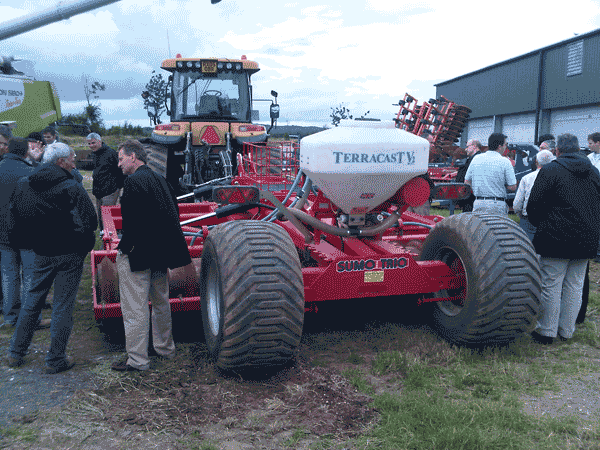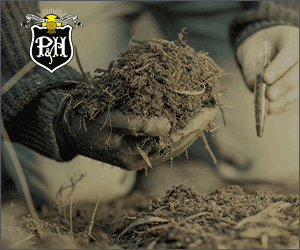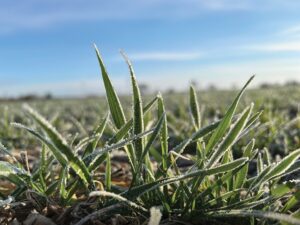Insights on oilseeds
AN INTERNATIONAL DISCUSSION
renewable energy, sustainability and export requirements were hot discussion topics among participants at the 15th International Oilseed Producers Dialogue (IOPD). The annual conference brought together oilseed producers from North and South America, Europe and Southeast Asia to discuss various issues affecting farmers who grow soybeans and other oilseeds, such as canola, sunflowers and palms.
“This unique conference brings together all oilseed producing countries and provides an opportunity to discuss international issues affecting production and trade,” says Crosby Devitt, manager, market development and research for Grain Farmers of Ontario, who attended the conference, representing the Canadian Soybean Council. Devitt participated in discussions with more than 30 participants representing 16 producer groups in London, England from July 1-3, 2012. He says that given the location of the conference, presentations and discussions centred on European Union (EU) trends and influences over oilseed production and import/export requirements.
eu – an oilseed trendsetter
“It’s important Canadian growers be aware of purchasing trends and requirements driven by the EU,” says Devitt, who explains the EU plays a significant role in oilseed exports for many countries since it is such a large purchaser of soybeans and oils.
Biotech traits and the acceptance of genetically modified (GM) soybeans is a constant discussion topic in the EU. An IOPD speaker from the International Soy Growers Alliance summarized points of interest on the approval process for importing biotech traits in the UK, Paris and Berlin. Public acceptance of GM varies widely in the EU and each member country has their own culture and attitude that impacts the market for GM and non-GM products.
It isn’t just skepticism over GM traits and food that causes headaches for countries exporting to the EU, but the approval process of GM traits as well. An IOPD presentation on the use and access to vegetable protein in the EU noted the EU takes 20 months longer than the US to approve GM events. This delay in approval processes can have significant financial impacts on companies exporting oilseed protein products into the EU, especially since the costs of non-GM proteins are increasing over time and premiums for GM proteins are widening.

sustainability sells
Sustainability, or sourcing sustainably produced products, are hot agenda items for EU companies since the Renewable Energy Directive (RED) was adopted by the EU in 2009. A legislative act, the RED states that by 2020, at least a 20 percent share of energy is required to be sourced from renewable sources. Each member state of the EU is expected to contribute to the 20 percent target while the transportation sector in each member state is required to source an additional 10 percent share of energy from renewable sources.
“Canadian growers could see a day when they will have to prove their products are sustainably produced,” says Devitt referring to the EU’s RED and focus on sustainability. He suggests growers and exporters keep a close eye on trends in exporting countries like the EU because they have the potential to impact production practices here in Canada. Biotech and GM traits have already proven to add additional requirements for Canadian oilseed exports to the EU and renewable energy and sustainability could be the next challenge.
With the current demand for non-GM in many European countries, the Canadian soybean industry has been successful in capturing premiums for high quality non-GM soybeans exported to the EU. With 35 percent of soybean production being non-GM, Canada is well positioned to serve the EU market with segregation protocols and the Canadian Identity Preserved Recognition System. While Canada has been successful exporting into the non-GM soybean market, Devitt says “growers need to watch these trends and developing export requirements if we want to remain a player in the EU market.”
The IOPD provides member organizations an opportunity to keep a pulse on trends and issues affecting all oilseed producing countries, including Canada. Devitt says it’s important Canada continue playing a role in these discussions and events to keep abreast of trade developments, trends and international affairs. Conference participants could have the opportunity to shape decisions affecting growers in Canada and around the world by working together as a global producers’ organization and partnering on issues of common interest.
For 15 years, the IOPD conference has provided participants the opportunity to come together and discuss oilseed production, international issues and trends, not to mention developing network contacts throughout the world — something Devitt considers the greatest opportunity of the conference. •
AN INTERNATIONAL OILSEED AGREEMENT
In addition to conference speakers, farm tours and industry updates, participant organizations of the International Oilseed Producers Dialogue (IOPD) signed an annual resolution.
The agreement, intended to record the intentions of the IOPD member organizations, included areas such as the development of international oilseed markets, research and development, trade liberalization, new uses and sustainable agricultural practices.
Sixteen producer organizations signed the resolution committing to work together to develop and promote a sound oilseed industry.
• American Soybean Association – US
• Australian Oilseeds Federation – Australia
• APS Soybean, Oilseeds and Cereals Producers of Paraguay Association – Paraguay
• Brazilian Soybean Growers Assoc. – Brazil
• Canadian Canola Growers Assoc. – Canada
• Canadian Soybean Council – Canada
• European farmers and European cooperative organizations – European Union
• Federation Francaise des Producteurs d’Oleagineux et de Proteagineux – France
• AHDB – HGCA – United Kingdom
• Malaysian Palm Oil Council – Malaysia
• National Farmers Union – United Kingdom
• National Farmers Union Scotland – United Kingdom
• Paraguayan Chamber of Traders and Exporters of Cereals And Oilseeds – Paraguay
• Union zur Förderung von Oel-und Proteinpflanzen – Germany
• United Soybean Board – US
• United States Soybean Export Council – US
























